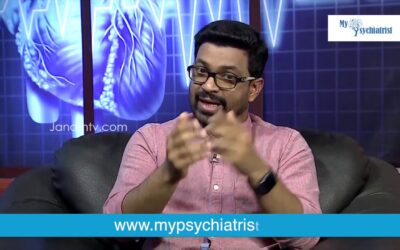Intellectual Disability was previously called Mental Retardation and is a condition wherein the development of the brain does not happen properly, with the result that the brain also does not work adequately.
A person with intellectual disability has limitations in two areas, Intellectual functioning and Adaptive behaviours. Intellectual functioning is measured by the IQ, and is the person’s ability to learn, reason, make decisions, and solve problems. Adaptive behaviours are the skills necessary for day-to-day life, such as being able to communicate effectively, interact with others, and take care of oneself (toilet training, feeding, grooming etc). ID involves both a low IQ and problems adjusting to everyday life. There may also be problems with learning, speech, social, and physical abilities.
Based on severity, there are four levels of ID: mild, moderate, severe, and profound.
Intellectual disability affects about 1% of the population. Of those affected, 85% have only mild intellectual disability. They just tend to be a little slower than average to learn new information or skills.
- Cause
Intellectual disability can occur whenever something interferes with normal brain development. This can be from any time starting from conception to adolescence until brain development is completed. However, a specific cause for intellectual disability can be pinpointed only in about one-third cases.
The common causes include
- Genetic conditions
- Problems during pregnancy such as alcohol use, infections, malnutrition, increased blood pressure or blood sugar etc.
- Problems during childbirth such as difficult or delayed delivery, premature delivery, and complications like cord around the neck wherein the baby does not get enough oxygen during or immediately after childbirth.
- Illness or injury, especially during early childhood. Infections like meningitis, whooping cough, or measles, severe head injury, near-drowning, extreme malnutrition, exposure to toxic substances like lead, mercury etc.
- Symptoms
Depending on the severity, signs may appear during infancy, or they may not be noticeable until a child reaches school age. These include, delay in milestones such as rolling over, sitting up, crawling, walking, talking. Difficulty or delay in attaining independency ( potty training, dressing, and self-feeding). In older children, difficulty in remembering things, inability to connect actions with consequences, behaviour problems such as explosive tantrums, difficulty with problem-solving or logical thinking, and difficulty with academics at school may also be seen. They may show childish behaviour inappropriate to the actual age
- Diagnosis
If your child has below average intellectual and adaptive skills, the doctor will perform a three-part evaluation: interviews with you, observations of your child, and standard tests to determine IQ. You may need to additionally visit specialists like a psychologist, speech pathologist, paediatrician, neurologist, or physical therapist based on the severity of symptoms and additional problems. Blood tests and brain imaging scans may be also be required based on the suspected cause of Intellectual disability, and to rule out other conditions that cause delayed development. These include hearing loss, learning disorders, neurological disorders, and emotional problems.
IQ (intelligence quotient) is measured by an IQ test. The average IQ is 100, with the majority of people scoring between 85 and 115. A person is considered intellectually disabled if he or she has an IQ of less than 70 to 75.
- Treatment
Based on the results of these tests and observations, a treatment and education plan would be developed for each child. These may include stimulation of the senses and muscles in early infancy, physical therapy, speech therapy, adaptive training, special education, occupational therapy etc. Support for the parents including parenting skills training may be needed. Medications may be advised for behavioural problems if severe, and also for other associated problems such as seizures.
The main goal of treatment is to help your child reach their full potential in terms of education, social skills, and life skills. The long-term outlook depends on the severity of the disability and the quality of training provided. Many people with intellectual disability are able to take up jobs that requires only basic intellectual skills. They may be able to live independently and support themselves.



0 Comments